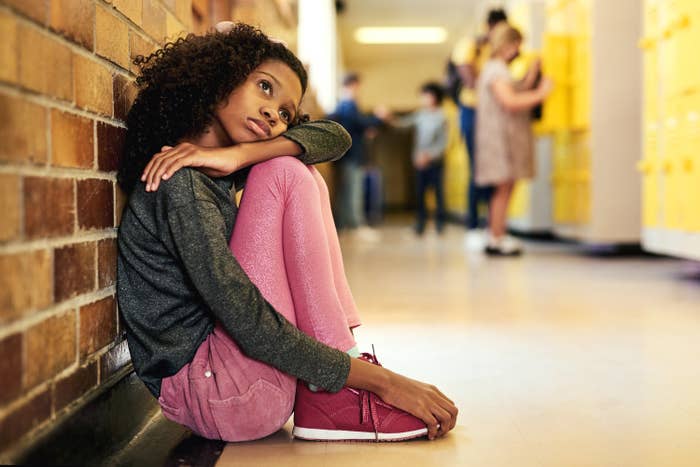Note: This post contains mentions of suicide.
With ADHD for instance — as explained in a previous BuzzFeed post — "the average age range for a woman [to get diagnosed] with ADHD is between their late 30s or early 40s."
Similarly, according to the International OCD Foundation, "OCD can occur at any age, but there are two age ranges when it first appears: between the ages 8 and 12 and between the late teen years and early adulthood."
And with autism, "it's likely that many adults will receive a diagnosis of autism after the age of 50," according to the Organization for Autism Research.
With all of that in mind, I came across a Reddit thread that really hit home on this point. Redditor u/[deleted] asked: "People who got diagnosed with ADHD/Autism/OCD as an adult, what made you seek out a diagnosis and how has it helped you?" and the responses are incredibly eye-opening and thought-provoking. Here are some of them.
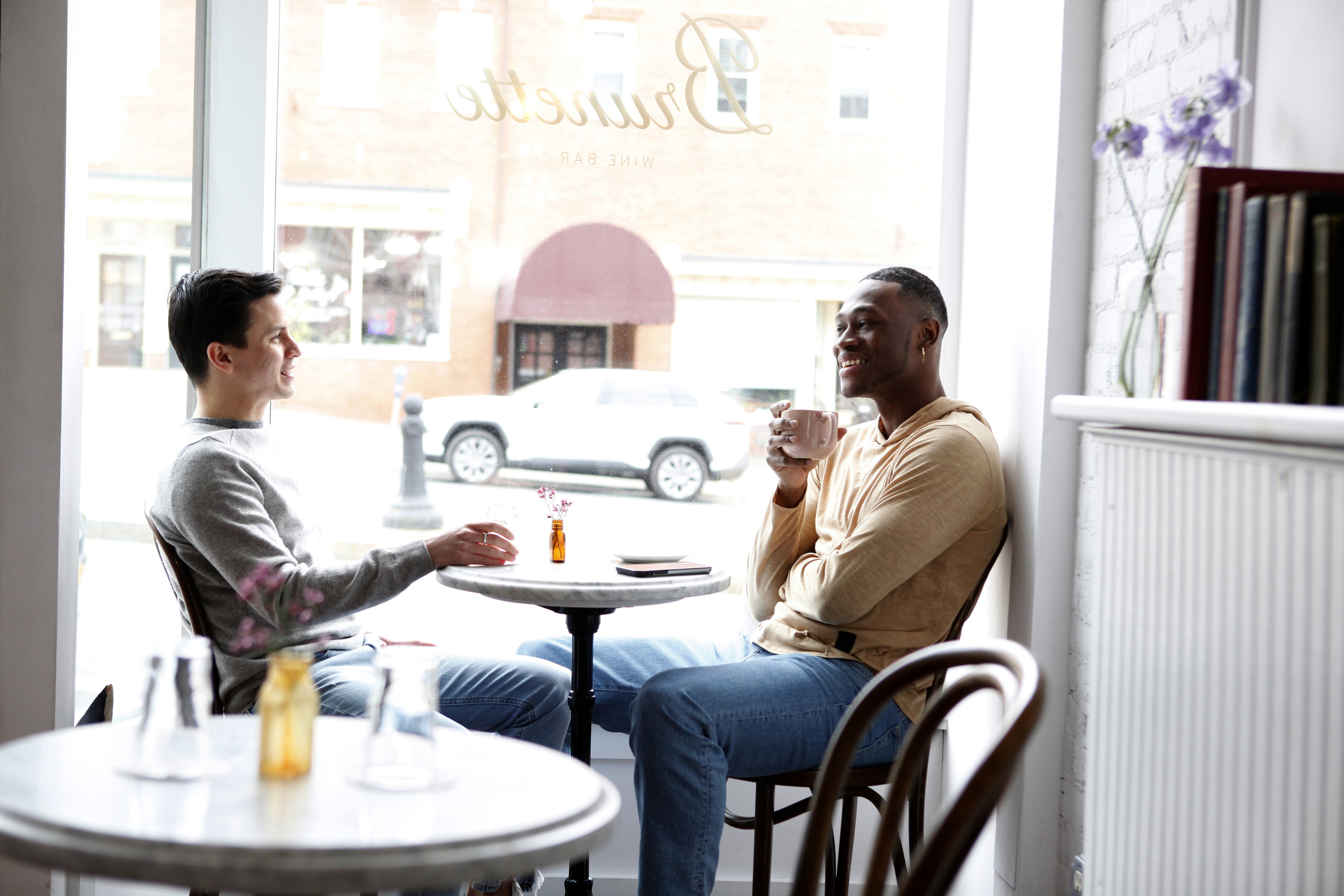
1. "I was struggling with studying in university. I was informed by the school counselor that my [preferred way of studying] 'shouldn’t be like that' — and I should seek out testing. My school would pay the whole fee if they found anything, and she was very certain that they would. I was diagnosed with ADHD, and I know I wouldn’t have handled graduating without the extra assistance."
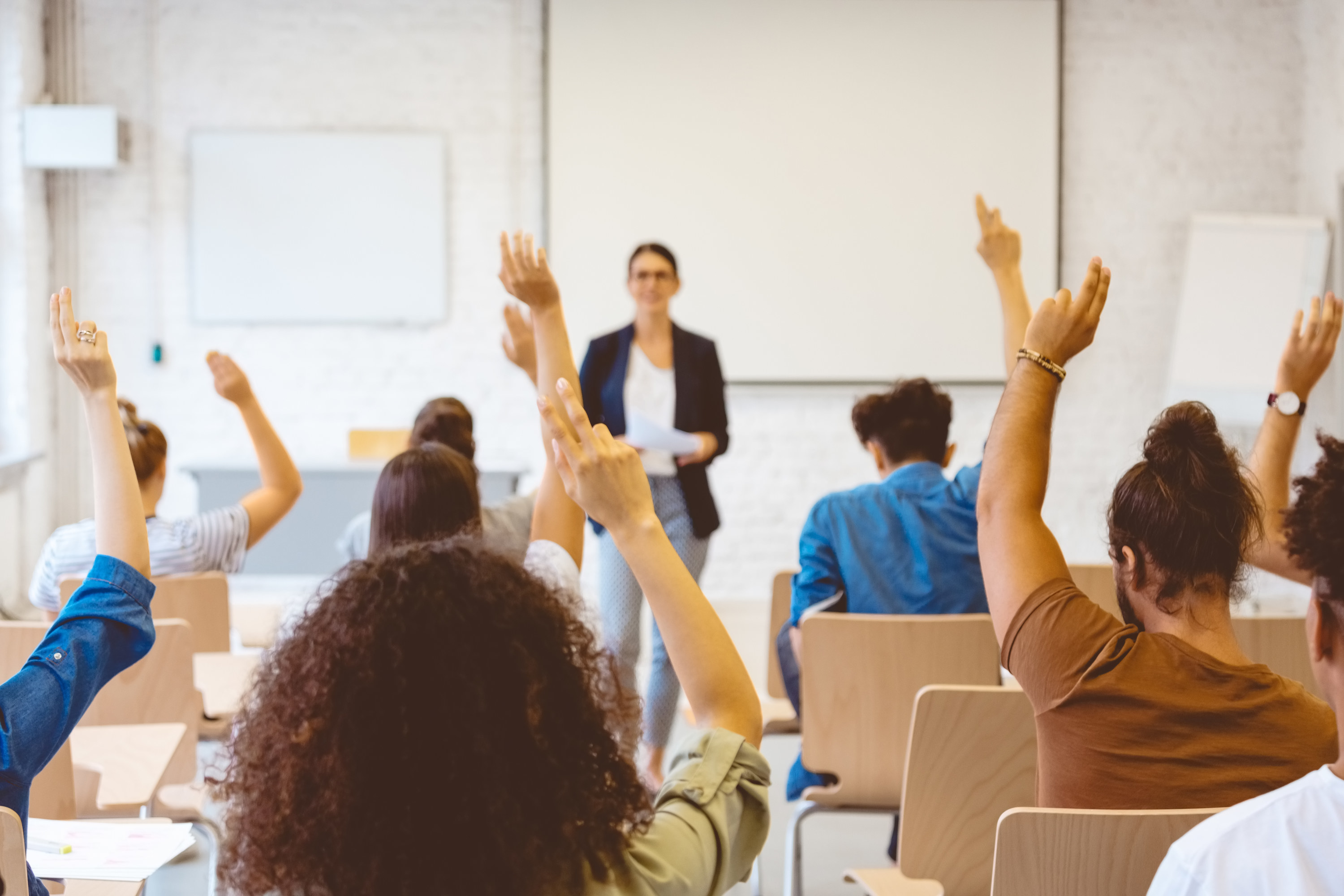
2. "I always suspected I had OCD, as I had been showing symptoms since I was a child. But I had a very basic understanding of OCD — as do most people, if they have any understanding at all — and I didn’t realize how many of the things I was doing/thinking were symptoms of OCD. I went to seven therapists who all diagnosed me with depression and anxiety. In the pandemic, I found the OCD subreddit and just felt like I could relate to so many things people were talking about."
"It felt like I didn’t know where my personality ended and OCD began. So many things I had dismissed as me just ‘being weird’ were actually OCD. I then reached out to my general practitioner a few months ago and told her I might have OCD, and they gave me a referral. I was officially diagnosed a few months ago and have been working with a therapist since.
Getting better will be a gradual process, and I think that’s the way it should be. It isn’t just a behavioral/mental change; it is also an identity change. OCD has been such a huge part of my life (whether I knew it or not) so I wonder who I am without it. But my therapist said who I am will not change, more HOW I am, and I think there is a lot of truth to that."
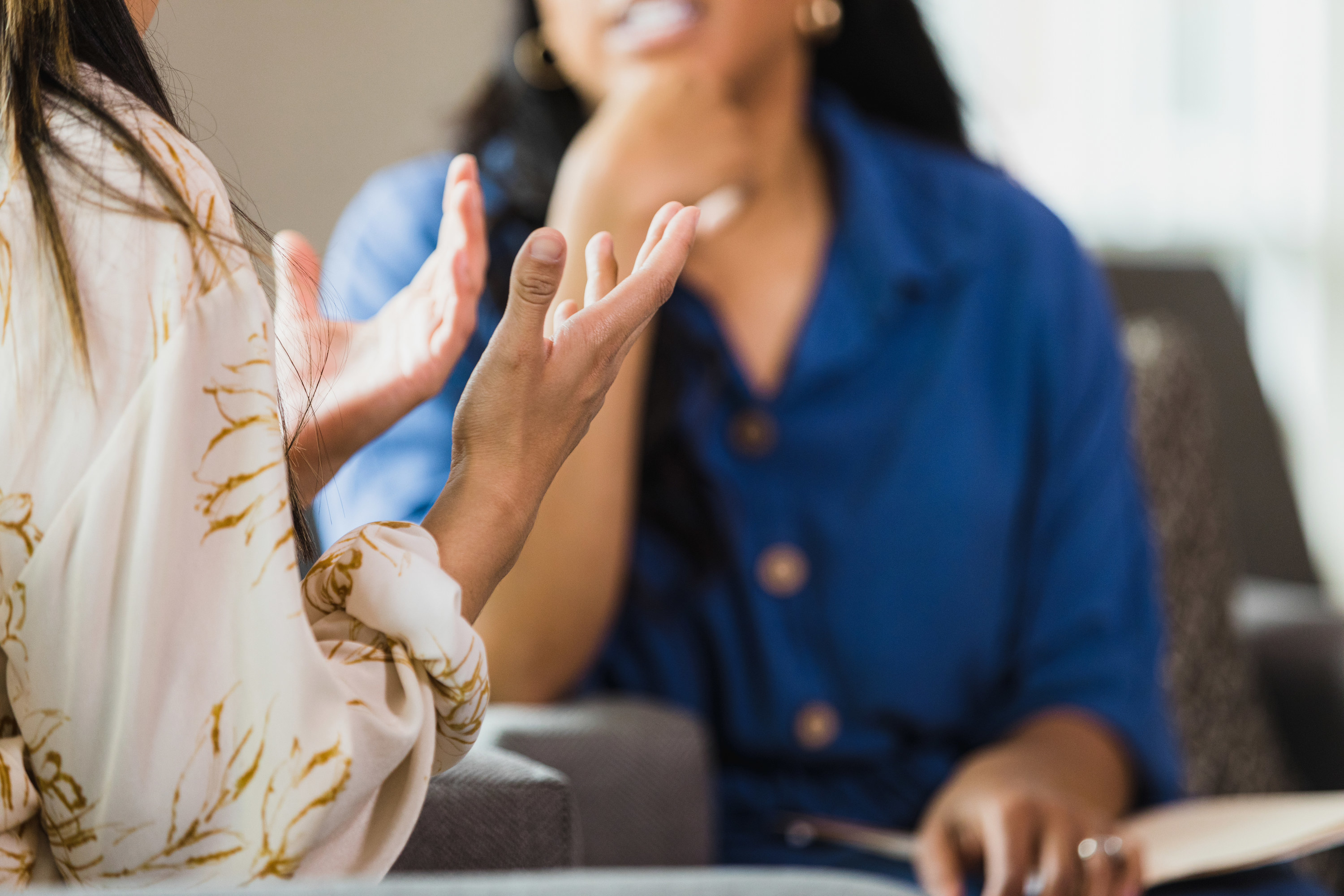
3. "I was recently diagnosed with ADHD as an adult. I have an extremely hard time coping with being at work, or even just being away from my home for large amounts of time. I thought it was just due to anxiety and exhaustion from depression. It was actually a sign of ADHD — not being able to pay attention to the fact that I’m still myself and can be OK and soothed wherever I go. I would get sidetracked and disassociate very easily, and the hours would just drag on, and I would fall into despair. That was my daily life. After a couple years of being told I needed to meditate more or up my antidepressants, I actually just needed [a different medication]."
4. "I came across some of Dr. Russell Barkley's videos on YouTube. Think it might have been while browsing Reddit. Realized he was literally describing my life and what was going on in my head. Took a while to actually get a diagnosis (the military really doesn't like diagnosing it), but once I did, and got the right medication, it was life-changing. It was a night and day difference, like a light switch. If you even remotely suspect that you might have ADHD, I highly recommend that you go and talk to someone about it. Just do it."
5. I got diagnosed with autism at age 28. I have an older brother who got diagnosed at 13, but women and autism weren't taken seriously for a long time. Either way, I'm happy I got the diagnosis. There were so many things I struggled with — things that everyone else around me seemed to take for granted, which made me think I was either too weak, too stupid, or incapable because I wasn't able or didn't dare to do these seemingly normal things. As a result, I also didn't quite dare to say 'no' when someone asked me to do something (like at work) so as a result I constantly went over my own limits without realizing it. I was severely depressed for years and hated myself for being so useless and different."
"I also got misdiagnosed a bunch of times when I finally got in touch with a psychologist, because no one recognized the signs (again, autism and women).
I'm doing a LOT better now. I got the help I needed for the things I struggle with; I'm learning to say no and keep my own limits in mind (after a did end up with a nervous breakdown in 2017). I'm learning to prioritize myself and my own mental health instead of always putting others first.
And when I was getting my diagnosis, my mom recognized so much of my struggles in herself that she went in for an intake as well, and now she's been diagnosed, too. And it's very likely my grandma on my mom's side had some form of autism as well. So it definitely runs in my family."
6. "I got help for OCD a year ago. I'd put up with it since I was a kid, but it was getting to the point it was preventing me from sleeping and starting to piss off people around me. It's not like I'll ever be 'cured,' but I do have coping mechanisms now, and I can sleep at least. It also helps that I have a name for what's wrong with me because people are a little bit more understanding or willing to help if it's an actual thing, not just being 'weird.' It's also easier to talk about now too, and the more I can be open about how it impacts me, the more I can deal with it."
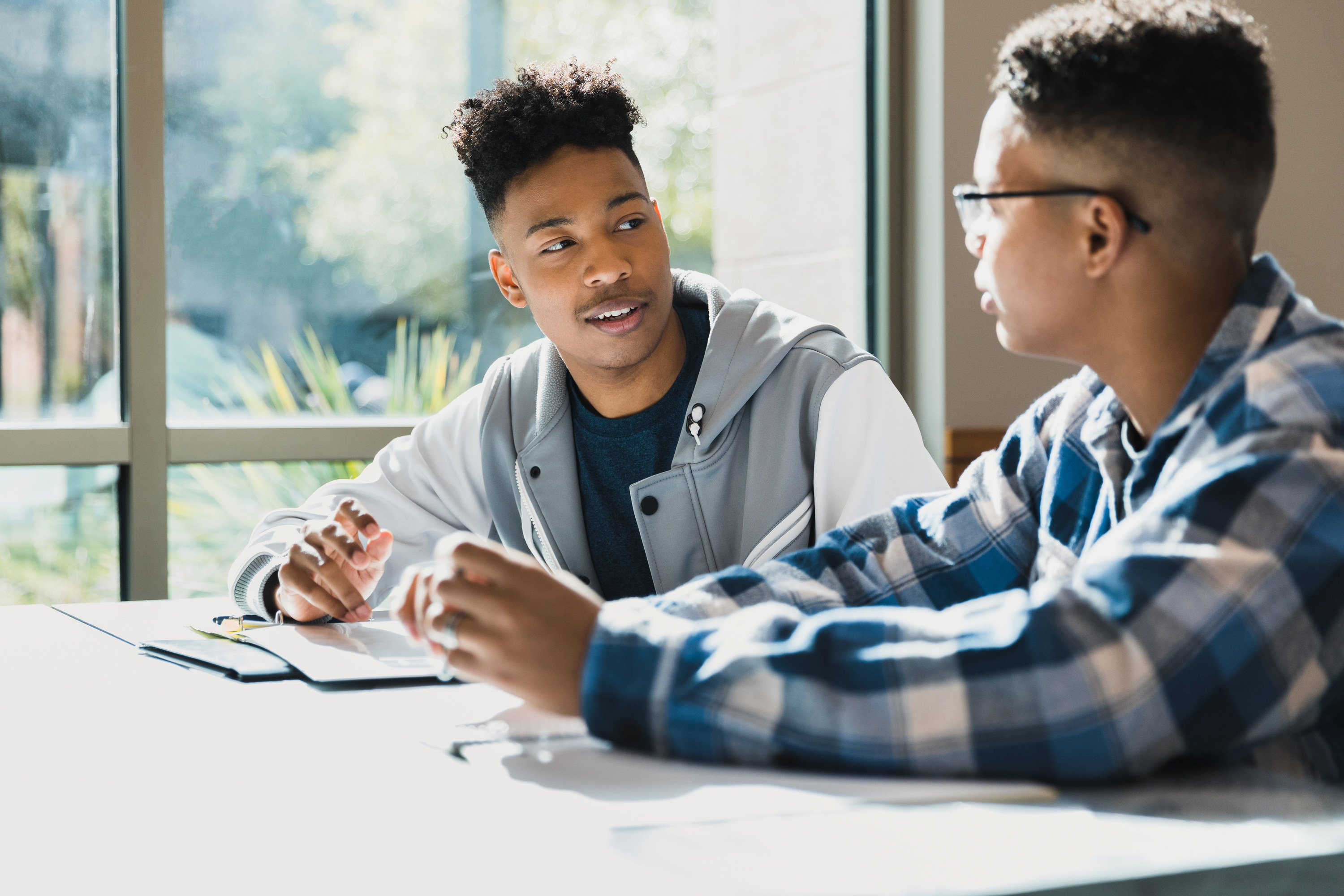
7. "My son was diagnosed with autism when he was 3 years old. After that, I did a lot of research so that I could get him the best possible support. Several years later, I found myself reading about how autism shows itself in women, and it just hit way too close to home for me. I've always had issues with socializing and poor mental health in general. I wasn't at all surprised when I got diagnosed since I, at that point, already knew."
"The official diagnosis is new, but already I'm getting better at forgiving myself for not being able to do certain things, and I finally have a 'language' for how I feel. There's still a lot of work to do though. As a gigantic desperate people pleaser for 30 years, I simply do not know who I am or what I like, and I struggle with feeling my own needs. I've managed to fight my severe depressive episodes better now, and I hope that I'll be able to have a lot fewer or none in the future."
8. "I can answer this for my husband. He started ADHD medications at age 30. Literally saved his life. Why did he start? Well, our child was diagnosed by their pediatrician and started on medication. My husband decided that he didn't like the idea of his child taking a mind-altering drug that he did not know how it worked, so he took one pill. The difference was amazing. He got lost and didn't lose his temper, he finished two things he started, and he even spoke better."
"He contacted his doctor, and he's been on them ever since. He is now a functioning adult who can hold conversations, get difficult work done, and hold down a job that pays well.
He's had to go off his medication a few times for medical reasons, usually for just a few days, and he hates it. Seriously, the medication changed his life. I know we wouldn't still be together if he didn't take that one pill so many years ago."

9. "It never occurred to me. I went to see a psychiatrist about something different, but I guess he got a sense and started asking me questions. I argued against it at first, but he was able to guess so many things about me and my early life accurately that I caved. Apparently, not only do I have it — but it's a 'textbook case.'"
"The best thing the diagnosis helped with was just understanding things about myself. And, even though so much stuff was so hard for me growing up, I'm actually really proud of all the ways I figured out to cope and how I learned to lean into the good parts of ADHD.
I can be a real over-focuser, but that is very useful as an academic scientist, and I wonder if I could have done a PhD without it. I didn't have accommodations for my ADHD in school because it wasn't even a recognized thing back then. I am actually kind of happy that I didn't, though, because I learned so many ways to adapt, and I think being in the 'real world' is so much easier because I learned how to work well with it on my own."
10. "I started seeing a psychiatrist for other issues I was having. Then, during a session after over a year of seeing this person, I mentioned that a teacher suggested that my brother should be tested for ADHD — and they determined he did have it. My therapist suggested that I could benefit from testing, too, since he had identified some warning signs from things I had told him, and I now had family history of the disorder. I was 18 years old, not far from turning 19. (It really annoyed me that he didn't suggest that we act on his suspicions until I told him someone else had it — the joys of being a woman.) Long story short: I got diagnosed, and so did the rest of my nuclear family."
"Turns out we all have it, so none of us picked up on it because that's just what we considered 'normal.' It eased many of the tensions between us (especially between my mother, my siblings, and me) because now we know that we never disobeyed my mother, left things all over the place, or messed up in school out of malice or laziness. My parents didn't explode out of frustration with us and each other and forgot about everyone's schedules because they are bad people or bad parents, but rather we have all been trying our best all along, but had been climbing uphill without knowing we were on a slope at all.
It took a painful period of adaptation while we processed the news, but my family life is now much better. We have learned better ways to communicate and try to be more understanding when things go wrong.
I, in particular, have always been a good student, and have always been under enormous pressure to uphold my 'reputation.' I periodically burned out and spiraled, and had to pull myself out of that pit only to do it all over again. It had been like that since elementary school. I honestly hated myself at one point, because I could not keep living like that but did not know how to stop.
After I got diagnosed (plus other circumstances), I worked hard to learn how to manage my expectations and give myself grace. I no longer feel a need to be the best everywhere and take the hardest, most prestigious road all the time. It took enormous pressure off me. I'm still successful according to my own standards (I'm starting my master's degree in August), but I can now admit to myself and others when I can't do or need extra help with something, can admit when I did something wrong, and don't need to do things the hardest possible way to prove I can, or overload myself with activities to increase my prestige. It's not perfect, but it is getting better."
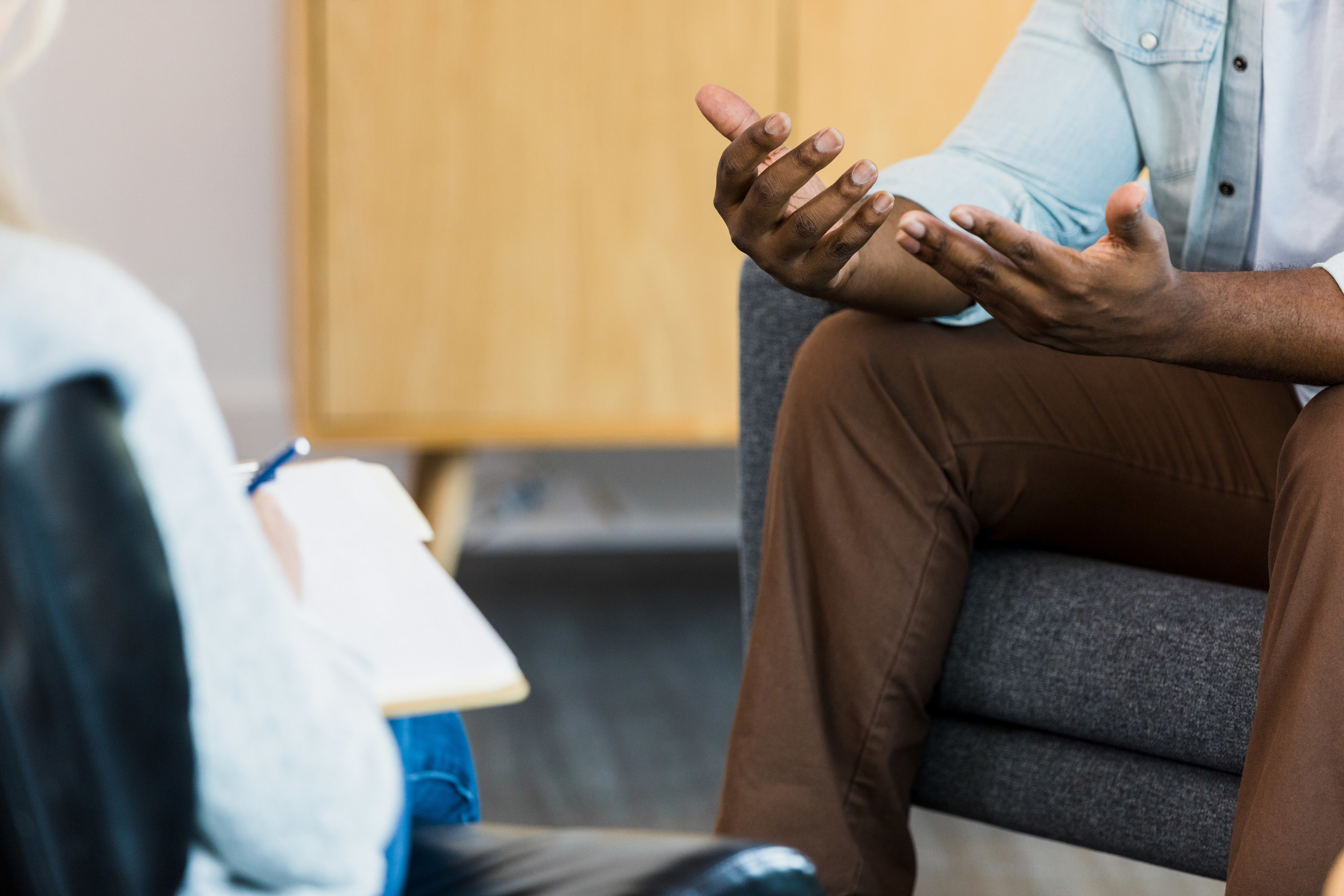
11. "I was diagnosed with autism in my late teens. I started to consider a diagnosis when I was eating lunch with a group of friends and suddenly one of them screamed at me and demanded that I stop staring at her and that I was making her uncomfortable. I apologized and continued eating, but the next day she said I was doing it again. The same thing happened every day for a month, and I admitted that I didn't even realize I was doing it."
"I had been screened for autism several times before, but I was never diagnosed. It was my mom's worst fear when I was a baby, but every doctor shrugged her off. So when I brought up the possibility of me being on the spectrum, she was a little hesitant. I wrote down a complete list of my symptoms, while she reviewed past autism screenings from my childhood and preteens, and none had been completed correctly. They gave surveys to my teachers, who marked 'neither agree nor disagree' on every item. Even the psychiatrists claimed not to know anything about me and wrote in the notes that my mom was just [overthinking things] and wanted a diagnosis.
So we went to a female psychiatrist, and after showing her my list and answering a few questions, she gave me a diagnosis. My mom cried in the car on the way home. I always tell that story to convince my friends that women are still not taken seriously in the medical field."
12. "As absurd as it sounds, it was TikTok. I'd always assumed I was some flavor of ADHD, but when I got on TikTok about two years ago, I ended up on the ADHD/autism side of things, and I realized that so many people experienced the world in the same way I do. So, I reached out to a therapist, and after a while, we scheduled an assessment. I discovered in that diagnosis: I'm smarter than I thought, numbers-wise, like wildly. What I thought was me being a cool social chameleon was me masking for literally my entire life."
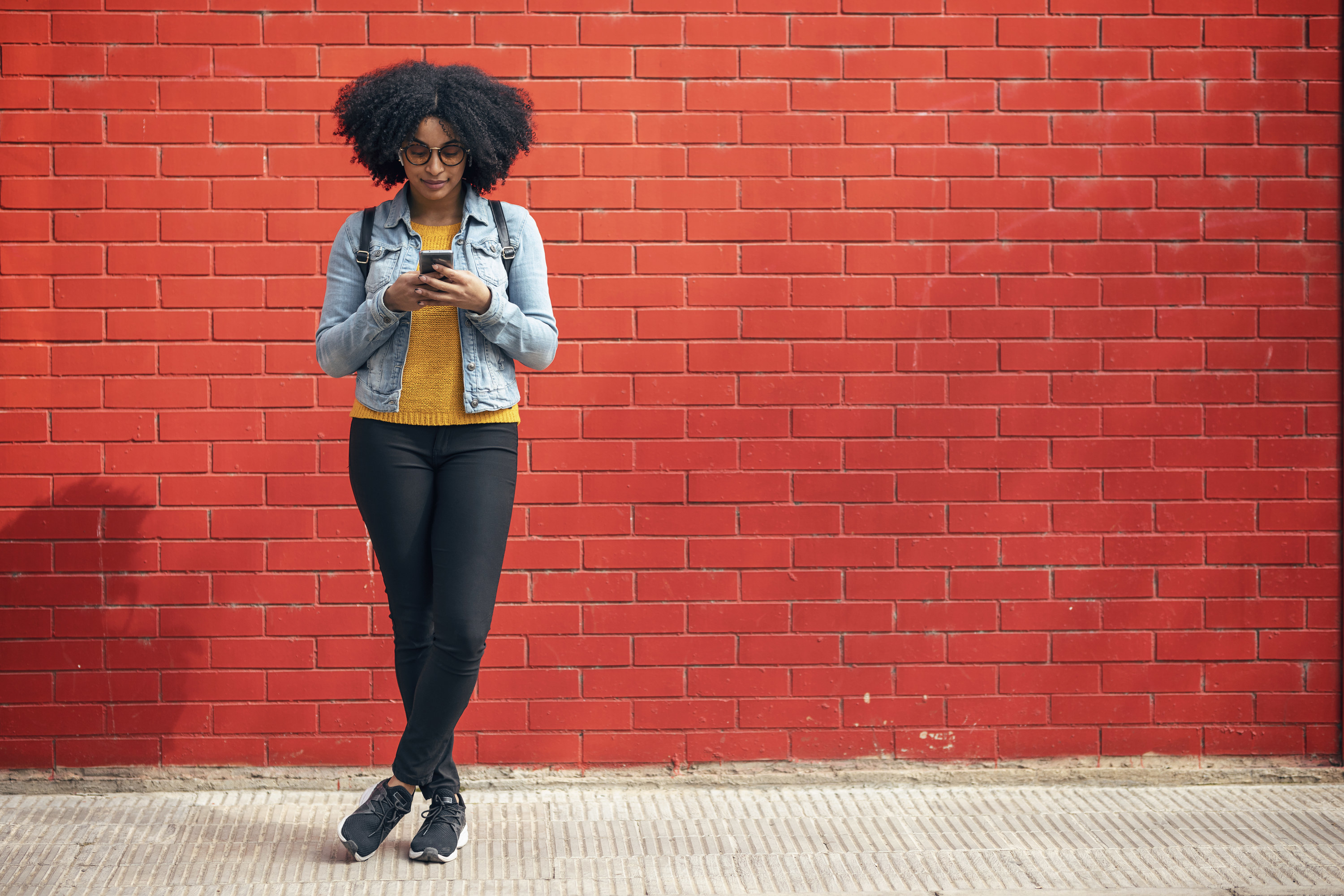
13. "I got diagnosed with ADHD at 33. My whole life I always felt like there was something in the way mentally. I was a straight C student. My first non-art class A grade was in college. I was always struggling in school and struggling to get all my classwork done. I then would struggle in my professional life too and was constantly being told that I wasn't a good employee. Both my brothers were diagnosed as children, and the more I did research about it the more I realized I fit the profile. My mother never had anything to say about it. I got diagnosed and my life has gotten a lot better. I told my mother that I had ADHD, and she said she already knew. According to her, I was tested at a young age."
"All I remember is her handing me my brother's ADHD book and saying, 'You might get some benefit from reading this.' I was younger than 10 years old. She never told me that I had ADHD because she didn't think I had it bad enough. No support. No medication. In her head just telling me, 'You're smart but you need to apply yourself' was good enough. Now I have a much better grasp on how my brain works, and I'm at a good job where I'm really appreciated and got the best review of my group. I've tried a few medications, but I felt the drawbacks were too big and haven't found a medication I like yet."
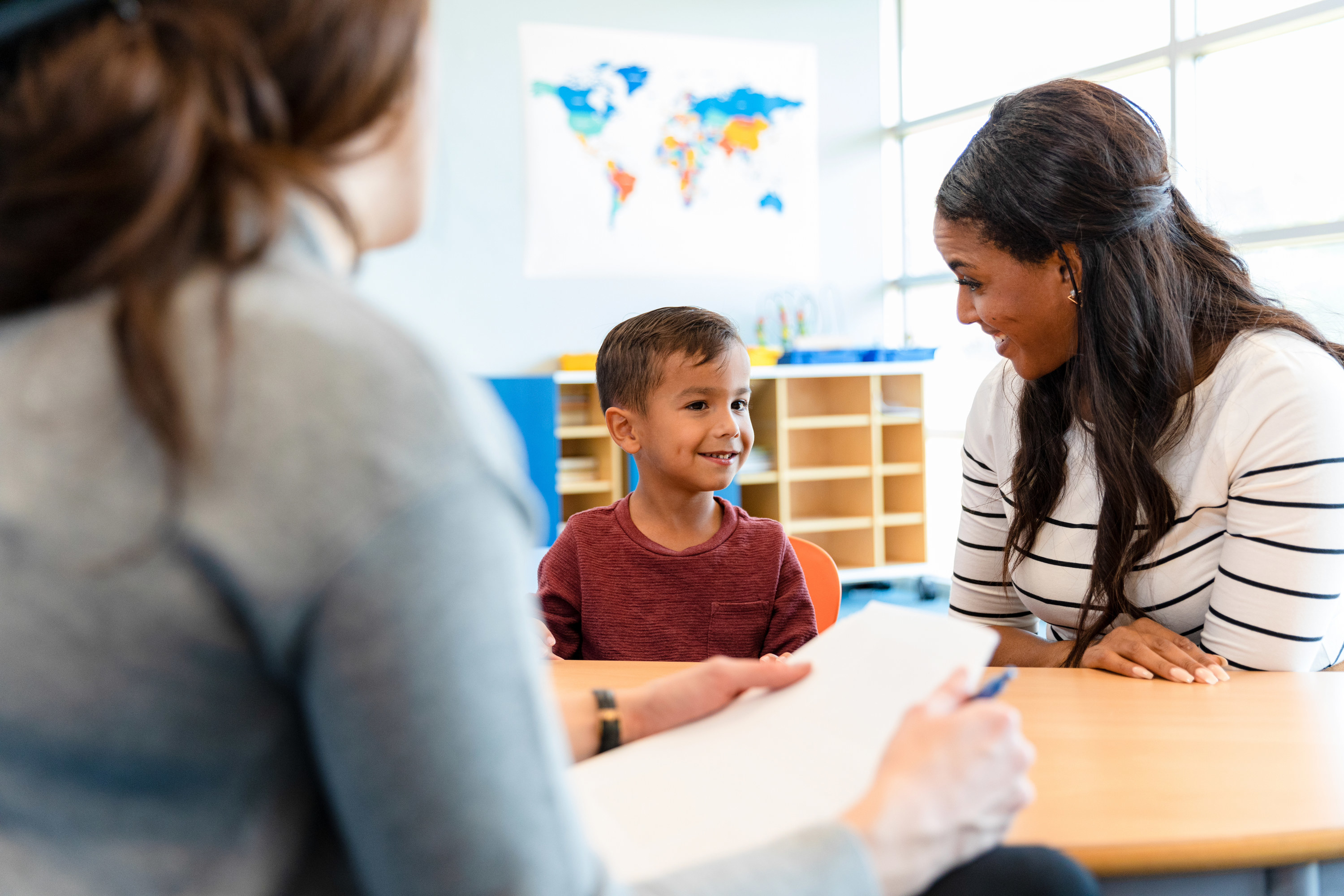
14. "I have ADHD (primarily inattentive) and OCD — and my whole family has ADHD. What made us seek a diagnosis was when my younger brother started high school and his grades were either 0 or 100. Not normal. He got diagnosed first, then I got assessed because I suspected OCD. Got a surprise ADHD. My mom told me that she never would've suspected I had ADHD because I was a 'gifted kid.' We're a lot alike and all of my ADHD symptoms I'd told her about she'd pass off as normal because she experienced them too. She decided that she should probably get assessed too, just in case (because I started recognizing symptoms in her and brought it up). Turns out she is ADHD inattentive too."
"We all knew my dad had ADHD, and he got assessed recently. My mom, brother, and I take the same medication, which has helped us all tremendously. Just takes your brain out of manual mode, and it actually works how it's supposed to. My dad takes another medication. We're less irritable and get along now, and our household is mostly functional now. TL;DR: Brother got diagnosed. I got diagnosed. Mom got diagnosed. Dad got diagnosed. We now have a functional household."
15. "Growing up I always felt a little out of place with everybody and was labeled as so many things: drama queen, too sensitive. I never felt like I quite fit in with everybody, and it made understanding myself and my 'role' in society so difficult. I got diagnosed with autism at 22, and everything made so much sense. Not only was I able to realize why my behavior was a certain way, but I could also set reasonable goals for myself and access help and resources instead of desperately wondering why I wasn’t like everybody else. I think it just helps you learn how to be yourself and know it is OK."
16. "I was helping my fiancé get checked for both ADHD/ADD and autism. And he basically said 'no' to everything or couldn't relate to the questions — but I could. After the appointments, he said I should get checked out instead. I have both and some mild OCD as well. Getting the diagnosis of both was life-changing. I never thought it wasn't normal to need 12+ hours of sleep or that my brain is so hyperactive was so draining on me."
"I got medicated and suddenly I could actually finish projects, I wasn't all over the place, and I finally felt my brain relax. Then when I got the autism diagnosis as well I could finally understand that I am not weird for nothing. It made me feel better about when I act a certain way or why I can't touch/taste something and not feel as guilty as before.
Now I know it is because I am different from the people around me. Now I know why it isn't easy for me to do XYZ and the reason why even if I do it 1,000 times, it doesn't get better.
I got into support groups that have helped me tremendously. I've gotten advice and help; that wouldn't have been possible without those diagnoses. It has also helped me get the right support in dealing with my diabetes. We never understood why I couldn't keep it regulated and why I had so much trouble following the treatment plans.
Now with the help of a psychiatrist and the doctors at the hospital I am on a treatment that works for me and some tricks to help me remember my meds.
Sometimes I wish that the ADHD was spotted earlier, but as my psychiatrist said about my autism: 'The good thing about you or your parents not knowing is that because you were always treated like a 'normal' kid, you taught yourself to tolerate situations a lot of people with the same diagnosis as you have trouble with.'
I am so happy my fiancé and some other people in my life pushed me to get checked. It was seriously life-changing!"
—u/SanseXD
17. "Read an article in Parents magazine about ADHD in children. Thought, Huh, that sounds like me as a child. Then I substituted 'work' for 'school' and it sounded like me. I was still working on my college degree at age 33, so I went to the student health center for diagnosis. Took meds and made the Dean's list my very last semester. In some ways, it was just too late. It has helped me accept myself though, and I do benefit from stimulants, though it's not a cure."
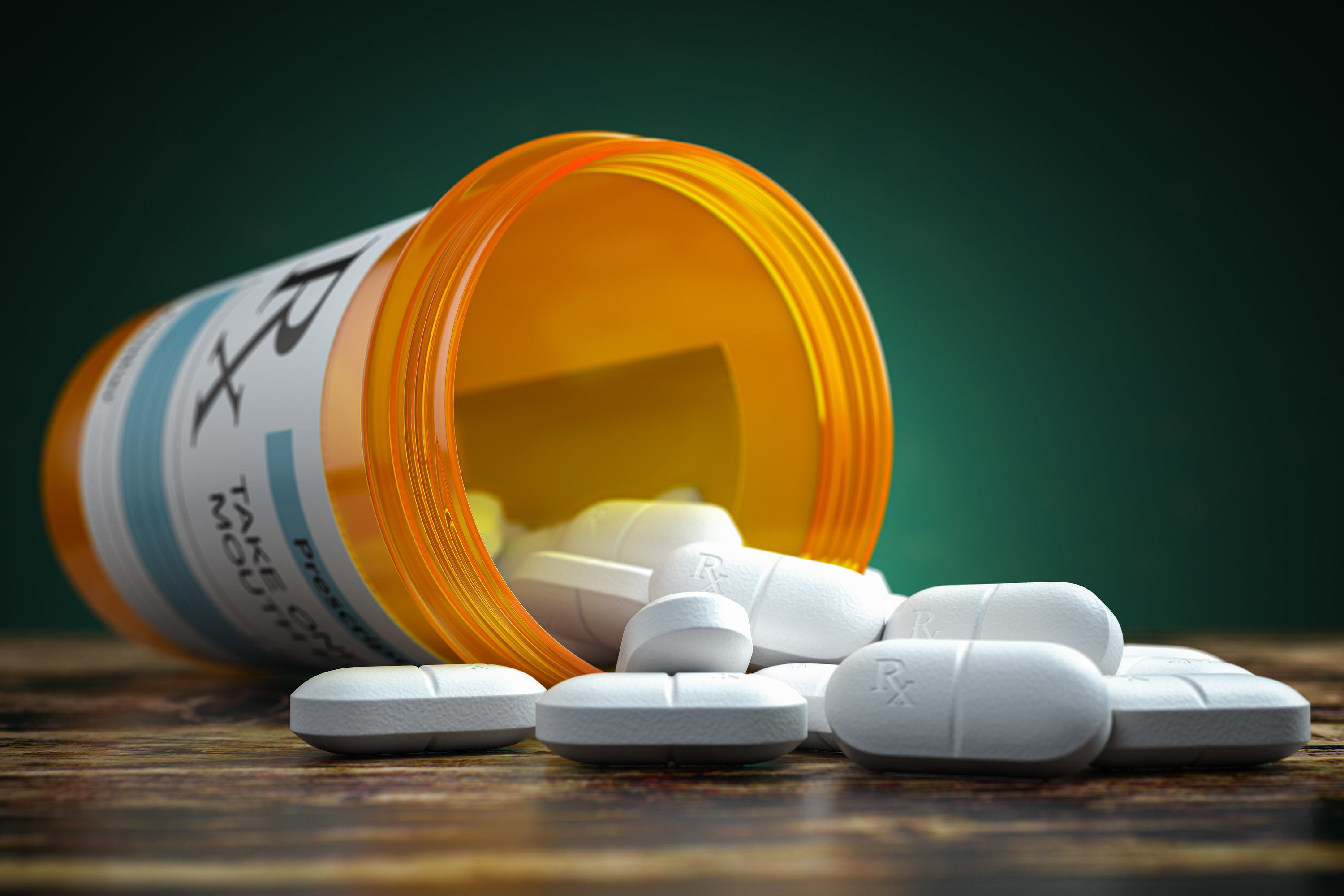
18. "For me, it was accidental. I had some real concerns over forgetfulness and not remembering things. I was referred to a neurologist by a psychiatrist. The neurologist wanted a series of cognitive tests done. Turns out my memory was fine (just getting older it seemed). But I scored high on a test for ADHD. This was in 2020. The neurologist asked me about my childhood and how I did in school. I was always a smart kid that knew a lot but could never focus on anything and usually scored poorly on tests."
"Also, I could never remember to study. I grew up in the '80s, so I had an informal diagnosis of 'Lazy, dammit! Pay attention!' Once I got diagnosed and medicated, my entire life improved. I could actually focus on work, finish projects, and remember things. My entire family agreed about my improvement and told me, 'Well, back then, we just didn't know.' In reality, it was more of an influence on my grandparents who knew everything and my family accepted their diagnosis of me just being lazy. Now, no one ever would call me lazy."
Were you diagnosed with ADHD, OCD, or autism later in life? If yes, what made you get a diagnosis, and how did your life change after the fact? Tell us in the comments below.
Note: Responses have been edited for length and/or clarity.
Below are some helpful resources if you believe you may have ADHD, OCD, or autism or know someone who does, and are interested in learning more:
• CHADD (Children and Adults with Attention-Deficit Hyperactivity Disorder) is a national nonprofit that helps people affected by ADHD.
• Mental Health America is a community-based nonprofit that addresses the needs of those living with mental illnesses, such as OCD.
• Autism Self Advocacy Network is a non-profit organization that aims to advance disability rights, promote autism advocacy, and seek equal access and opportunities for those with autism.
The National Alliance on Mental Illness helpline is 1-888-950-6264 (NAMI) and provides information and referral services; GoodTherapy.org is an association of mental health professionals from more than 25 countries who support efforts to reduce harm in therapy.
Editor's Note: The resources at the bottom of this post have been updated.

